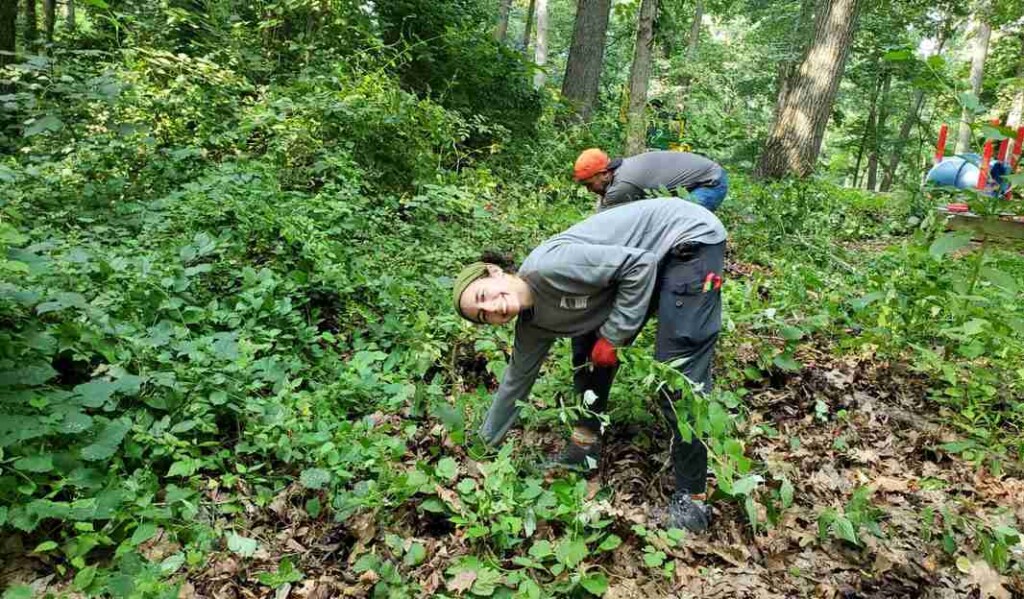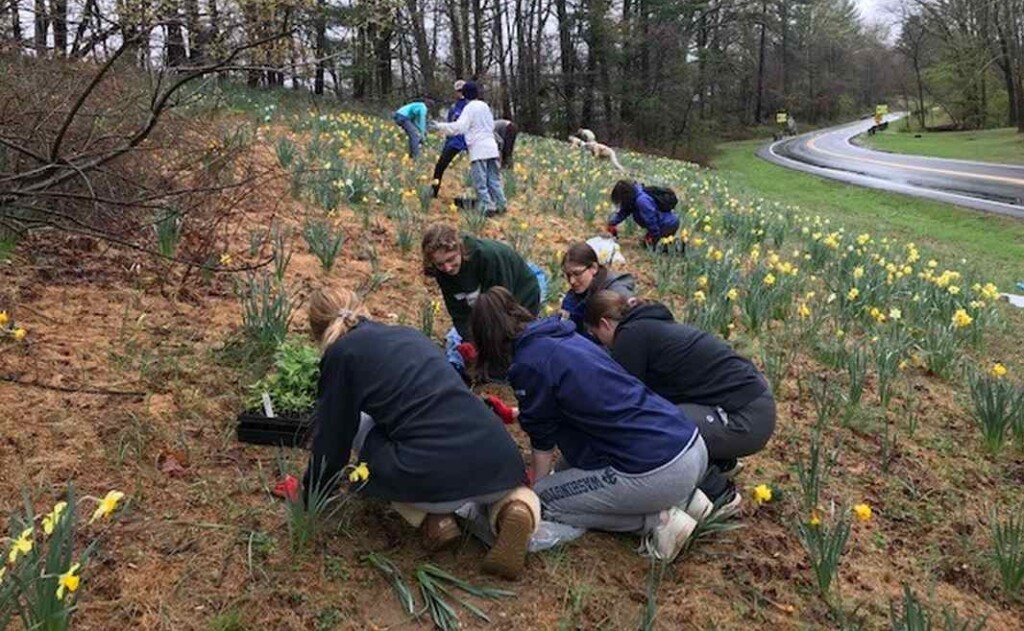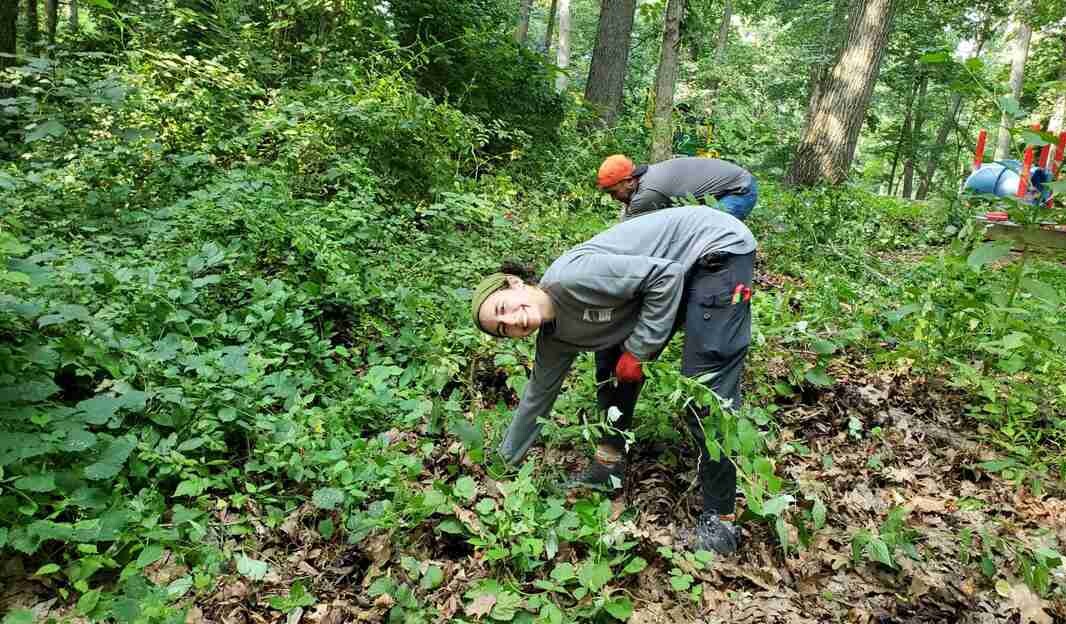
Around the capital beltway or Washington’s famous Rock Creek Park, you may see a group of people ripping up vines along the treeline beside the roads.
If you have then you’ve glimpsed superheroes who traded in their capes for gardening gloves and their time for the satisfaction of terminating an invasive species and saving a native tree.
Washington D.C’s “Weed Warriors” are a group of volunteers going back to 1999 that work for free to keep hundreds of species of invasive shrubs, vines, and climbers from taking over native ecosystems.
Among the 600 or so non-native invasive plant species found in and around our nation’s capital, some like Polygonum perfoliatum, also known as “mile-a-minute” vine, can be devastating. Suffocating trees by overgrowing the leaves in their canopy branches, mile-a-minute can kill thousands of trees every year.
Since 1999, Weed Warrior volunteers have logged over 135,000 hours of time weed whacking in Montgomery County alone. Anyone can become a Weed Warrior; the group works in units for two-hour spaces removing weeds or planting native species in their place.
These invasive species management events are led by specially-trained volunteer Weed Warrior Supervisors and/or staff from the Montgomery Parks Dept. Warriors can get certified to de-weed in their spare time, or lead events on their own. They can even have their own unique patch of ground in the D.C.-Metro area to control.
Why would anyone want to trade their free time or laboring hours away for free doing something our tax dollars are supposed to do for us? The answer is simple: it’s addicting.
“If I have any good mental health, it’s due to Weed Warrioring,” said 74-year-old area resident Barbara Francisco. “You have a sense of accomplishment.”
OTHER GREAT VOLUNTEER FORCES: Volunteers ‘De-seaweeding’ Results in Dramatic 600% Improvement of Coral Regrowth
Francisco spoke to Justin Moyer of the Washington Post, who found the volunteer groups were filled with people who were happy to get out into nature and make a meaningful impact on biodiversity.

The Weed Warriors website states that non-native, invasive plant species (NNIs) can alter the complex webs of plant-animal associations that have evolved over thousands of years to such a degree that plants and animals once familiar to us are eliminated.
In meadows, for example, NNI monocultures can threaten butterfly populations because they can no longer find the native host plants they depend on for survival. In forests, NNI vines can strangle and smother trees. NNI shrubs can displace and shade out native plants that provide birds and other wildlife with food and shelter.
MORE NEWS LIKE THIS: Eagle Scout Leads Volunteers to Build Accessible Path Up to Beautiful Popular Overlook
Recent research has even shown that NNIs can alter soil chemistry and disrupt the growth of the mycorrhizal fungi on which healthy forests depend.
Anyone who feels this is something they want to contribute their time to can go to the Montgomery County Parks website here and look at the upcoming Weed Warrior events—the next one is October 21st.
SHARE This Awesome Opportunity To Get Out In Nature With Neighbors…




















